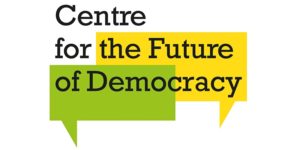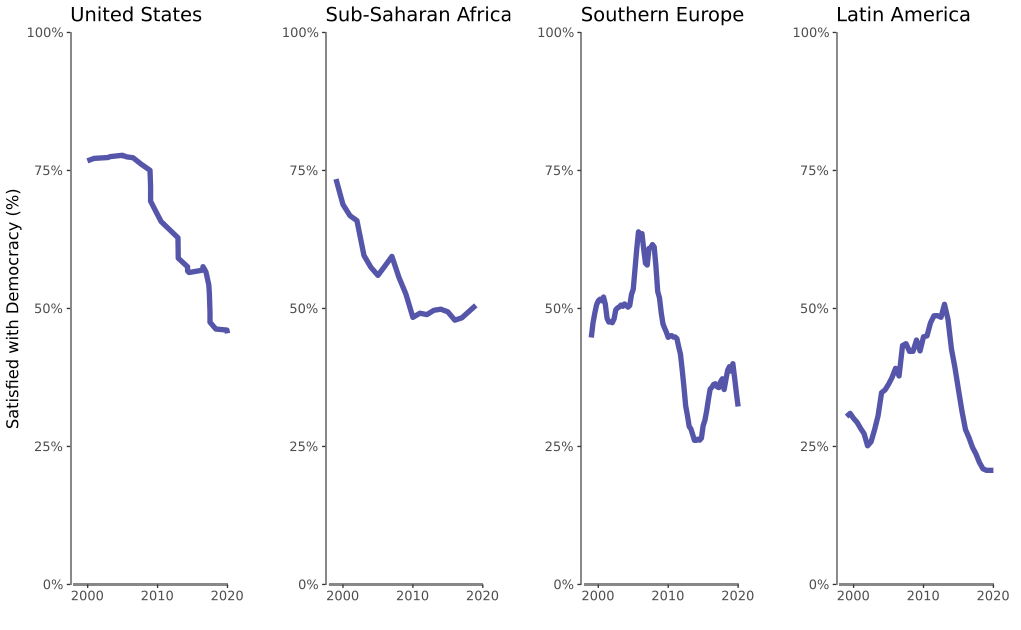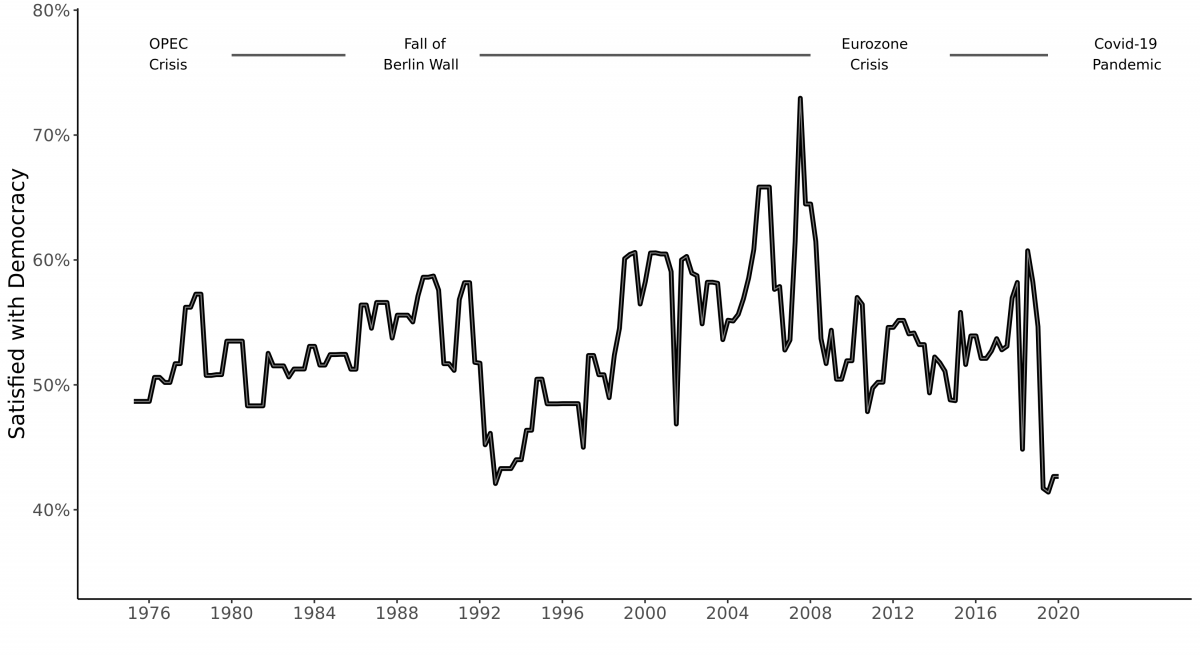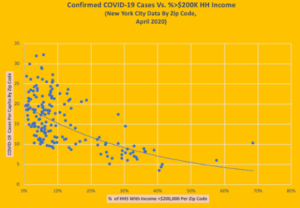Andrew James Klassen and Roberto Stefan Foa discuss the role that government effectiveness in handling Covid-19 will play in restoring or undermining faith in democracy. https://t.co/dNKH9TGsJW
— PACE Funders (@PACEfunders) May 14, 2020
The emerging challenge for Western democratic states is to devise a new social contract between the state and its citizenry, which will entail an adjustment of the norms that are the oil in the engine of a nation, argues Tom McTague, a London-based staff writer at The Atlantic and co-author of Betting the House: The Inside Story of the 2017 Election.
 Freedom and the norms of behavior that bind us are too easily thought to be either protected or felled in one go. In fact, they are far more likely to be lost in events, swallowed gradually, like trees in ivy. This process can happen voluntarily and temporarily, in response to threats and emergencies when liberty is sacrificed. But it can also happen through decay, as old freedoms, privileges, or norms fail to adapt, and lose public consent, their costs seen as too high to maintain, he writes:
Freedom and the norms of behavior that bind us are too easily thought to be either protected or felled in one go. In fact, they are far more likely to be lost in events, swallowed gradually, like trees in ivy. This process can happen voluntarily and temporarily, in response to threats and emergencies when liberty is sacrificed. But it can also happen through decay, as old freedoms, privileges, or norms fail to adapt, and lose public consent, their costs seen as too high to maintain, he writes:
The challenge ahead is to adjust to the new world that COVID-19 is creating, to address our physical vulnerability in ways that carry public support. We don’t yet know whether the liberal democratic system is strong enough to meet this challenge. Even old oaks can be hollowed out. History, though, suggests that it is more robust than assumed, its norms of behavior stronger, more deeply rooted, and enduring than appearances suggest. We are stronger than we think. RTWT
 A wide range of commentators — from Francis Fukuyama to Anne Applebaum to Gideon Rachman and Daron Acemoglu — have weighed in on whether government effectiveness in handling this epidemic will restore or undermine faith in democracy and democratic governance, notes Roberto Stefan Foa,* co-founder of Cambridge University’s Centre for the Future of Democracy, and Andrew James Klassen, founder of the HUMAN Surveys project:
A wide range of commentators — from Francis Fukuyama to Anne Applebaum to Gideon Rachman and Daron Acemoglu — have weighed in on whether government effectiveness in handling this epidemic will restore or undermine faith in democracy and democratic governance, notes Roberto Stefan Foa,* co-founder of Cambridge University’s Centre for the Future of Democracy, and Andrew James Klassen, founder of the HUMAN Surveys project:
Our data show that public faith in democracy depends heavily on how democracies handle policy crises. That’s what makes it so important that democracies are ultimately successful in containing the current pandemic. By drawing upon aggregated, multisurvey data sets from the HUMAN Surveys project that combine all results on democratic legitimacy within a single repository, we constructed a quarterly trend series for satisfaction with democracy, using data from over 4 million respondents, 25 sources and 170 countries between 1973 and 2019.

Satisfaction with democracy across the world, 1998-2020: Across major world regions, people have grown dissatisfied with their democracies. The data are from the HUMAN Surveys data set at Humansurveys.org, covering 4 million respondents across 170 countries via surveys from 25 sources. (Charts by R.S. Foa and A.J. Klassen)
So is this the beginning of a new systemic crisis for democracy in general? Perhaps. Yet our research has discovered two additional findings, and a partial silver lining, they write for the Post’s Monkey Cage:
- First, trust in democracy has tumbled sharply in the past, and then recovered. Here’s an example. Back in the 1970s, Western Europe experienced a crisis of legitimacy almost as severe as the current one. And yet, satisfaction with democracy rebounded from the late 1970s until the early 2000s. The second oil crisis of 1979 marked a low point and then European democracy recovered, as shown in the figure below. Perhaps the coronavirus crisis of 2020 will mark another low point.
- Second, a minority of countries have bucked the negative trend in democratic satisfaction of recent decades. It’s interesting to note that many of those same countries have mounted an effective coronavirus response. Where public institutions are effective, this reinforces confidence in the democratic system as a whole. Democracies such as South Korea and Taiwan have implemented rapid and effective responses to the pandemic — and may be reaping the rewards, as President Moon Jae-in’s landslide victory in last month’s South Korean elections shows.
- Finally, there is the possibility that dealing with the novel coronavirus will dent the rise of populism… and return to establishment parties and policy experts. Already, there are tentative signs that some publics are becoming more favorable toward democratic governments following scientific policy advice, and toward medical and public health authorities in general.

Dissatisfaction with democracy in Western Europe, 1975-2020: In the region, satisfaction with democracy has collapsed in the past, yet managed to bounce back. Data are from the HUMAN Surveys data set, with a population-weighted, constant country sample. (Chart by R.S. Foa and A.J. Klassen)
A Tale of Three Cities
Inequities of suffering, relief, and greed have accompanied the extraordinary 2020 COVID-19 pandemic, according to McKinsey’s former chief economist David J. Lighton and James S. Henry, a Global Justice Fellow at Yale University. Several analysts have reported on these inequalities separately, the full horror of the situation can’t be grasped unless we examine them side-by-side, they write for the American Interest:
Responding to COVID19, many countries are considering to scale up their special voting arrangements, notes International IDEA. But boosting online voting is much more efficient than expanding postal voting, IDEA‘s Peter Wolf contends.
*A contributor to the National Endowment for Democracy’s Journal of Democracy.








